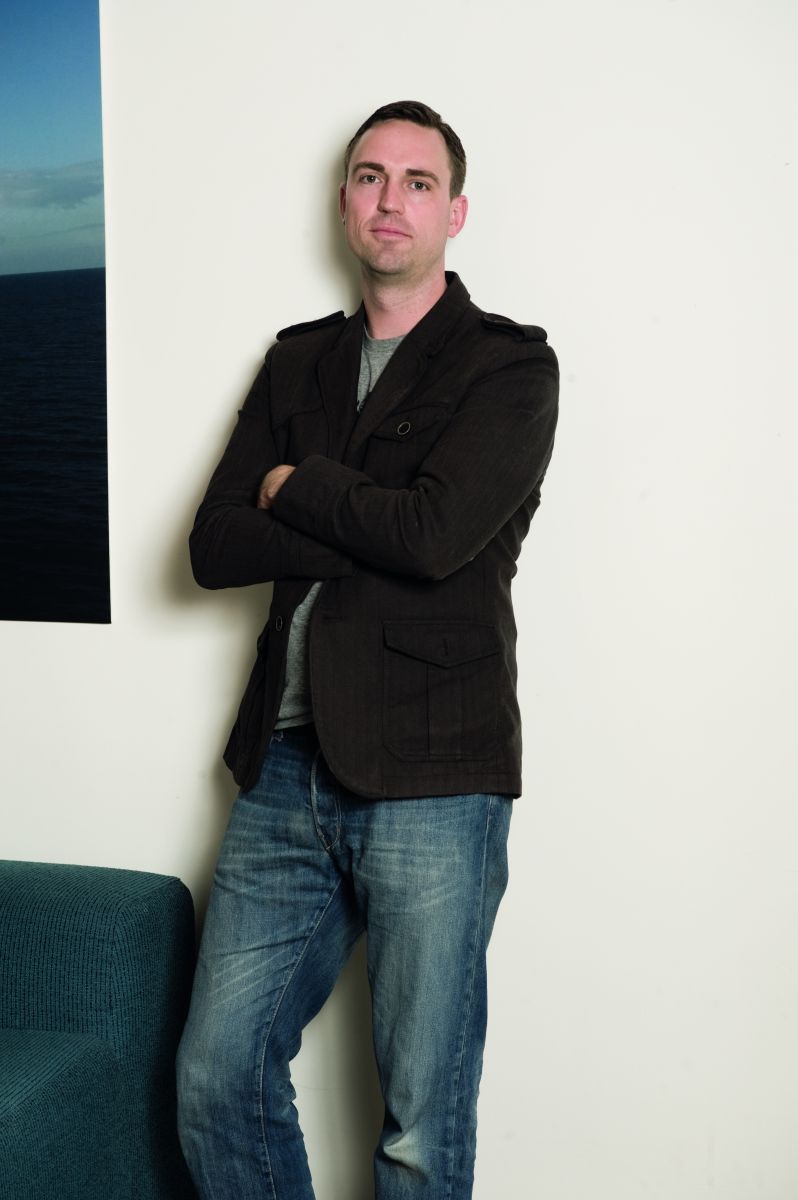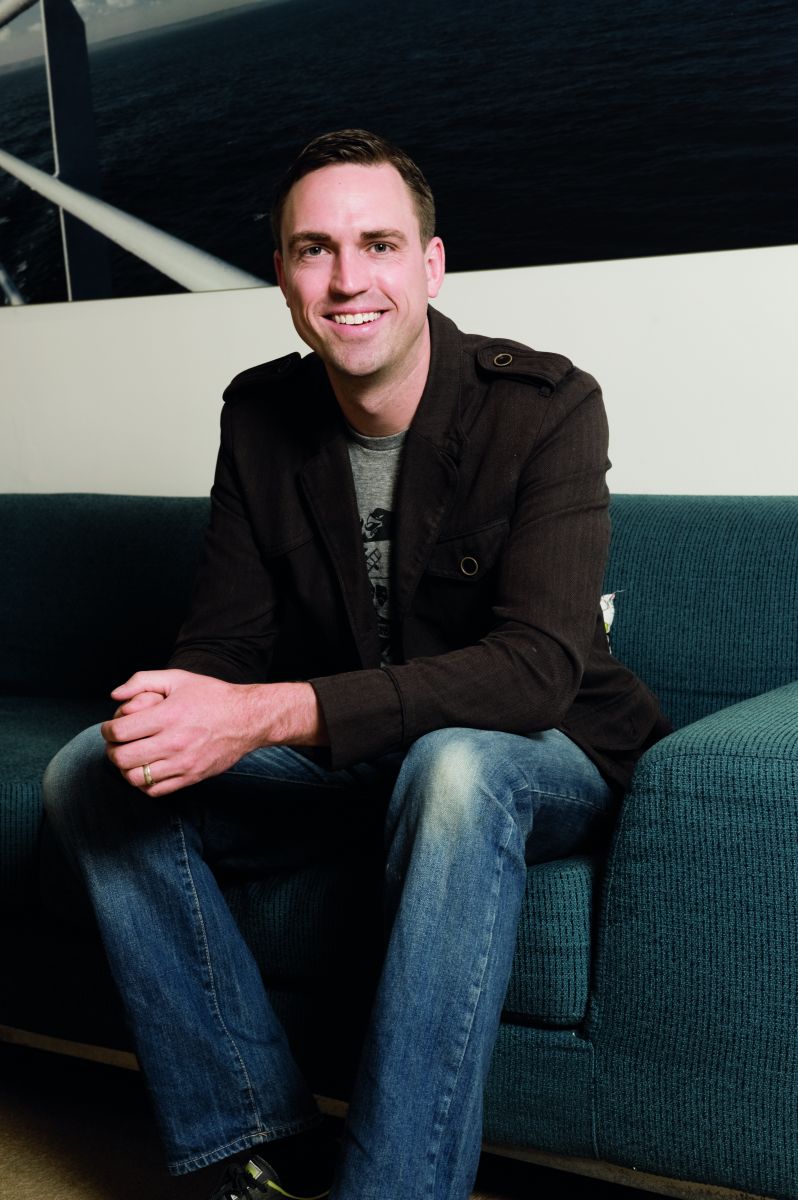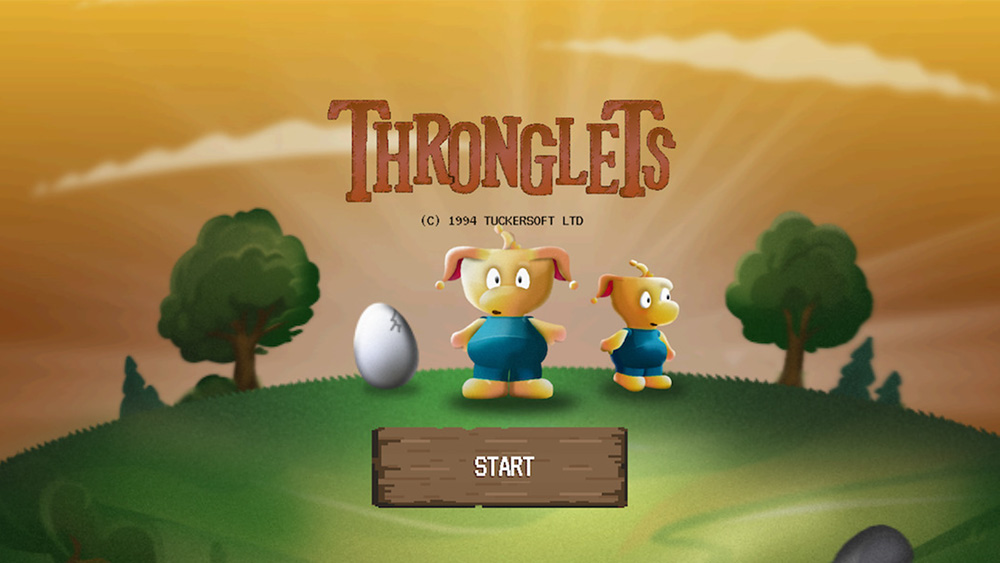Ryan Carson on Treehouse, FOWA, startups and more!
He’s the man who got us networking at The Future of Web Apps and learning online via Treehouse. Tom May meets the American entrepreneur who’s passionate about breathing energy into the UK startup scene
This article first appeared in issue 217 of .net magazine - the world's best-selling magazine for web designers and developers.
Web entrepreneur Ryan Carson doesn’t do things by halves. An American living in Bath, he decided the UK startup scene lacked energy, so he launched the Future of Web Apps, an event that’s since grown in size, produced multiple spin-offs and expanded across the US. In 2006, he decided he needed a better work-life balance, so put his company Carsonifed on a four-day week – a radical move but one he’s stuck to ever since.
And right now he’s decided he wants to make Think Vitamin Membership – Carsonified’s video tutorial service for web designers and developers – the number one industry choice. “I want to be way better than Lynda.com,” he proclaims. “They’ve got over 100 people working for them and we’ve got eight, but we’re ridiculously passionate, so I know we can do it.”

To achieve that, he’s making some big changes. First is a new name. “I was always worried that ‘Think Vitamin Membership’ was a little convoluted,” Carson admits. “Some people think it’s a premium version of thinkvitamin.com, our blog, and that they’ll just get more in-depth blog posts.” So he’s changing it to ‘Treehouse’, which he says “reflects the wonder of learning as a child”. The URL will be teamtreehouse.com and Carsonified has spent $2,000 securing the @treehouse Twitter name from a failed startup.
What’s more, they’re completely redesigning the app. “We’re throwing away the whole thing and starting over,” he explains. “Part of that involves adding a gamification layer. We feel that as you learn, you should be rewarded for doing so. So to prove you’ve learned jQuery or CSS3, you can take a quiz. If you pass that, you unlock a badge. And you’ll be able to put that badge on your site.”
We're disrupting education. We're changing the way that people learn.Ryan Carson
It’s a subject Carson is clearly passionate about. “We’re disrupting education,” he says with a gleam in his eye. “We’re changing the way that people learn. Our members are designing and building the next Facebook, the next Twitter, the next Google and we’re helping them to do that.”
Show business
He’s also helping them to learn (and network) through Carsonified’s popular events. This year he’s brought back The Future of Mobile alongside The Future of Web Design and The Future of Web Apps, but the number of events is by no means set in stone. “I actually think that we could really merge all of the shows,” Carson says. “It’s all just becoming one. I think that they’re all pieces of the same puzzle.”
Events revenue continues to grow year-on-year, although Carson admits it varies hugely from one to the next. “And it’s so difficult to understand why,” he laments. “You can’t do A/B testing on your site very well because buying a ticket for an event is not a snap decision. It’s something you have to think long and hard about, not something you do based on whether the button is red or green.” He shakes his head. “I don’t know what possesses people to launch events,” he says. “It’s the hardest business I’ve ever done.”
Carson has also had to deal with criticism that his events often feature the same old faces. “Big name speakers sell seats,” he responds bluntly. “People you’ve never heard of won’t. It’s that simple.” However, in recently years Carsonifed has tried to balance things out by creating a second ‘Rising Star’ track, featuring relative unknowns. “They’re often much better speakers,” he enthuses. “They’re producing fresh content and they’re passionate. A good example is Aral Balkan. He used to be a Track 2 speaker. And he just kicked so much ass, we had to put him on the big stage.”
An Event organiser apart

Because Carson books the big names, people often perceive him as being part of the “elite” himself, but he’s having none of it. “Actually I think I’m kind of an outcast,” he says. “And I like that. I don’t want to be part of the elite. I’ve never written a book, for example. I want to be part of the community, not above it.” That seems slightly disingenuous, I suggest, given his reputation for publicity seeking and link-baiting via his blog and tweets. He dismisses the characterisation.
“I get a lot of shit for appearing to be link-baiting or self-promoting,” he says. “I don’t do either. I have strong opinions and I blog about them. We also make time to launch a ton of fun side projects like brickify.com. If that attracts the traffic and polarises people, then so be it."
Making mistakes
It’s not just his personal opinions he’s open about: Carson runs his business very openly and is happy to discuss its mistakes and failures.
“The first thing that any good entrepreneur admits is that they don’t really know what they’re doing,” he says. “And that’s probably the key to being a successful entrepreneur: getting over that terrible feeling that you don’t know what the right call is and you don’t know where you’re going.”
I think I'm kind of an outcast. And I like that. I don't want to be part of the eliteRyan Carson
It’s one reason he places huge importance on finding a mentor. “I saw a guy called Greg Ingham, who ran a £200m business, in a coffee shop in Bath,” Carson recalls. “I just took a deep breath and walked up to him and said: ‘You don’t know me, but I have a ton of respect for you and would be honoured if I can buy you a cup of coffee sometime. I have a couple of questions about my business I’d like to run by you.’ And he was kind enough to agree. That coffee blossomed into a chairmanship and years of helpful advice.”
Carson also counts such names as Kevin Rose, Evan Williams, Kathy Sierra, Tim O’Reilly, Tim Ferriss, Gary Vaynerchuk and Dave Morin as mentors, and advises all budding entrepreneurs to find their own. “Email someone you respect with a very short email,” he advises. “Say: ‘I have an immense amount of respect for you. I’m going to be in town. Can I buy you a cup of coffee on this day, at this time? All I want to do is ask your advice for my business.’ That’s a very easy email to answer quickly with ‘yes, I’d love to’ or ‘no, I don’t have time’. The worst email to send is an essay about your life, your ideas. How do you respond to an email like that? Most of the time people won’t.”
Taking risks
There’s a running thread through all of this, and it’s Carson’s passion to see other web entrepreneurs succeed. It’s partly why he’s generally against the idea of new firms seeking out huge amounts of venture capital. “Most web startups really just don’t need much,” he says. “There’s a growing fad for startups to get seed money from accelerators such as Y Combinator or Seedcamp. These programs have their place but most web startups don’t need them. Launching a startup is risky and scary and participating in an accelerator isn’t going to change that. You can’t de-risk yourself. You’ve just got to man up and do it.”
The first thing that any good entrepreneur admits is that they don’t really know what they’re doingRyan Carson
Nor does Carson believe you have to spend every waking minute working to succeed. In fact, he’s astounded that so few companies follow his example of working a four-day week. “It’s really not that hard,” he says. “We’ve been doing it for about five years now.”
But what about designers whose clients may not understand? “Well, I’ve worked in a design studio as a developer,” he responds. “And I think if you educate your clients from day one and say: ‘We’re extremely committed and we work hard Monday to Thursday but we take Fridays off and we don’t answer emails or phone calls because it makes us that much better Monday to Thursday’, I know people will go for it. As long as you hit your deadlines there’s no reason that can’t work.”
And nor, finally, does Carson buy the oft-repeated line that you have to be in the US to succeed: he’s living proof of that. “Britain is lovely, it really is,” he enthuses. “I’ve been here 11 years now and you start to appreciate the subtlety. That’s not something you understand if you’re only here a year or two; it takes longer. It’s almost like a fine wine being here. It’s not obvious, but it’s wonderful once you get it.”

Thank you for reading 5 articles this month* Join now for unlimited access
Enjoy your first month for just £1 / $1 / €1
*Read 5 free articles per month without a subscription

Join now for unlimited access
Try first month for just £1 / $1 / €1
Get the Creative Bloq Newsletter
Daily design news, reviews, how-tos and more, as picked by the editors.

The Creative Bloq team is made up of a group of design fans, and has changed and evolved since Creative Bloq began back in 2012. The current website team consists of eight full-time members of staff: Editor Georgia Coggan, Deputy Editor Rosie Hilder, Ecommerce Editor Beren Neale, Senior News Editor Daniel Piper, Editor, Digital Art and 3D Ian Dean, Tech Reviews Editor Erlingur Einarsson, Ecommerce Writer Beth Nicholls and Staff Writer Natalie Fear, as well as a roster of freelancers from around the world. The ImagineFX magazine team also pitch in, ensuring that content from leading digital art publication ImagineFX is represented on Creative Bloq.
